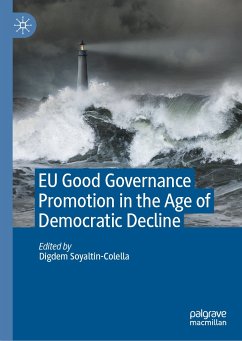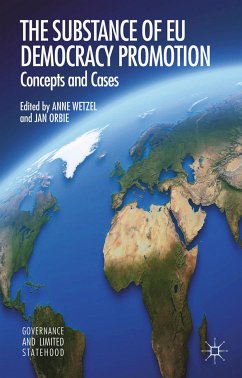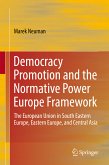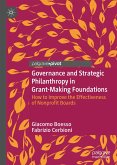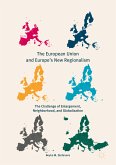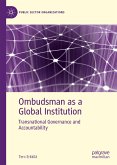-Christine Hackenesch, Political Scientist and Senior Researcher, German Development Institute, Germany
"This book, by a reputable group of EU scholars, provides a comprehensive and multi-national assessment of the EU's governance capacity and policy conditionalities both within the EU and beyond its borders. Strongly recommended."
-Ziya Önis, Professor of International Political Economy, Koç University, Turkey
"Once hailed as a major strength of its external action, the European Union's promotion of good governance has recently suffered from severe difficulties. This volume provides a comprehensive and up-to-date assessment, and stands out by its broad geographical and issue coverage."
-Frank Schimmelfennig, Professor of European Politics, ETH Zürich, Switzerland
The European Union (EU) support for good governance reforms has been the cornerstone of its conditionality and funding policies and contributed its role as a transformative power. This book re-evaluates the EU's governance promotion capacity both within the EU and beyond its borders in light of the simultaneous decline in democracy in Europe in particular, and across the whole world in general. The book is divided into three parts. Part I focuses on the EU's good governance transfer to member and accession countries. Part II examines how and to what extent the EU's governance promotion strategies travel beyond its borders and focuses on neighbours, partners, and aid recipient countries especially in Africa. Part III turns to other regional and global actors and discusses the implications of illiberal contesters such as China and Russia on the future of EU's good governance promotion efforts. The findings of the book bring fresh insights for the scope and depth of the EU's governance transfer capacity.
Digdem Soyaltin-Colella is Lecturer in Politics and Public Policy at the University of Aberdeen, UK
Dieser Download kann aus rechtlichen Gründen nur mit Rechnungsadresse in A, B, BG, CY, CZ, D, DK, EW, E, FIN, F, GR, HR, H, IRL, I, LT, L, LR, M, NL, PL, P, R, S, SLO, SK ausgeliefert werden.

